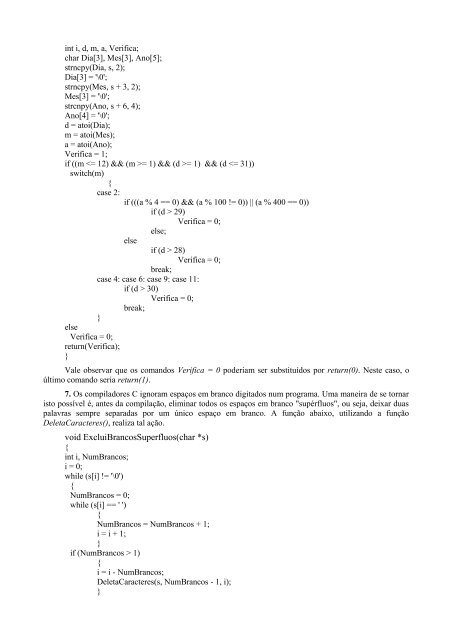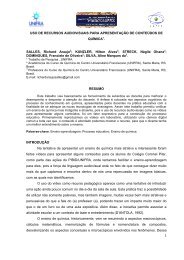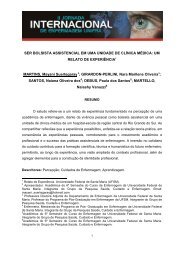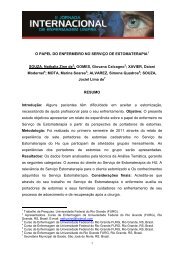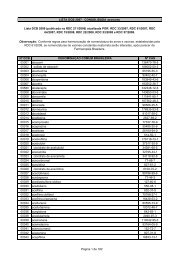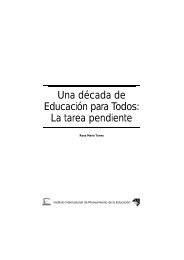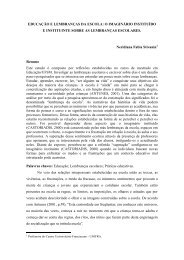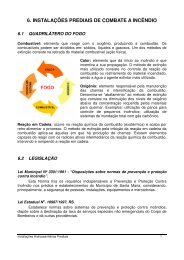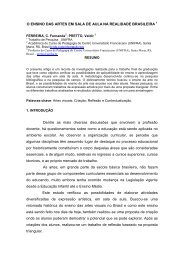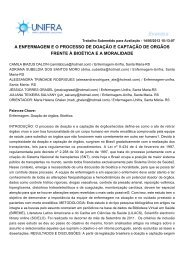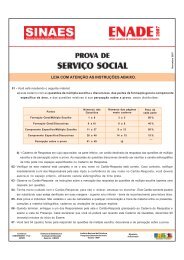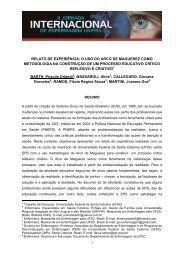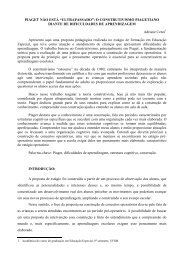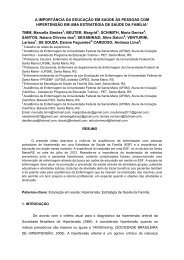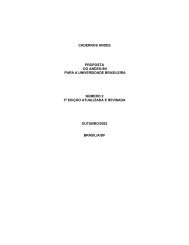Aprendendo a Programar Programando em Linguagem C - FSM
Aprendendo a Programar Programando em Linguagem C - FSM
Aprendendo a Programar Programando em Linguagem C - FSM
You also want an ePaper? Increase the reach of your titles
YUMPU automatically turns print PDFs into web optimized ePapers that Google loves.
int i, d, m, a, Verifica;<br />
char Dia[3], Mes[3], Ano[5];<br />
strncpy(Dia, s, 2);<br />
Dia[3] = '\0';<br />
strncpy(Mes, s + 3, 2);<br />
Mes[3] = '\0';<br />
strcnpy(Ano, s + 6, 4);<br />
Ano[4] = '\0';<br />
d = atoi(Dia);<br />
m = atoi(Mes);<br />
a = atoi(Ano);<br />
Verifica = 1;<br />
if ((m = 1) && (d >= 1) && (d 29)<br />
Verifica = 0;<br />
else;<br />
else<br />
if (d > 28)<br />
Verifica = 0;<br />
break;<br />
case 4: case 6: case 9: case 11:<br />
if (d > 30)<br />
Verifica = 0;<br />
break;<br />
}<br />
else<br />
Verifica = 0;<br />
return(Verifica);<br />
}<br />
Vale observar que os comandos Verifica = 0 poderiam ser substituídos por return(0). Neste caso, o<br />
último comando seria return(1).<br />
7. Os compiladores C ignoram espaços <strong>em</strong> branco digitados num programa. Uma maneira de se tornar<br />
isto possível é, antes da compilação, eliminar todos os espaços <strong>em</strong> branco "supérfluos", ou seja, deixar duas<br />
palavras s<strong>em</strong>pre separadas por um único espaço <strong>em</strong> branco. A função abaixo, utilizando a função<br />
DeletaCaracteres(), realiza tal ação.<br />
void ExcluiBrancosSuperfluos(char *s)<br />
{<br />
int i, NumBrancos;<br />
i = 0;<br />
while (s[i] != '\0')<br />
{<br />
NumBrancos = 0;<br />
while (s[i] == ' ')<br />
{<br />
NumBrancos = NumBrancos + 1;<br />
i = i + 1;<br />
}<br />
if (NumBrancos > 1)<br />
{<br />
i = i - NumBrancos;<br />
DeletaCaracteres(s, NumBrancos - 1, i);<br />
}


